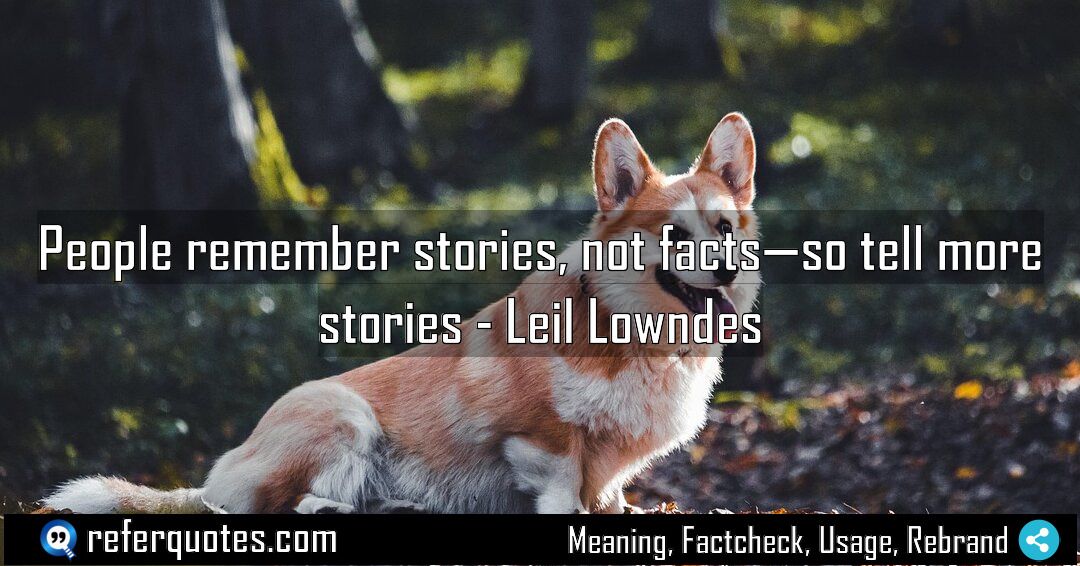You know, People remember stories, not facts—so tell more stories. It’s one of those simple truths that completely changes how you communicate once you really get it. I’ve seen this principle transform dry presentations into memorable conversations and build connections that last for years.
Share Image Quote:Table of Contents
Meaning
The core message here is that human brains are wired for narrative. We don’t just recall information better when it’s wrapped in a story—we connect with it on an emotional level.
Explanation
Let me break this down for you. Think about the last boring presentation you sat through, just slide after slide of data. Now, think about a great story someone told you recently. Which one can you actually recall? Exactly. Facts and figures engage one part of our brain, the logical processor. But stories? They light up the whole system—emotion, sensory centers, memory. It’s the difference between telling someone “our software reduces errors by 15%” and telling them about Sarah, the project manager who got to go home on time for the first time in months because our software caught a critical mistake before it derailed her entire project. See? One is a statistic. The other is a reason to care. It’s not that facts aren’t important. They’re just not sticky. Stories are the glue.
Quote Summary
| Context | Attributes |
|---|---|
| Original Language | English (3668) |
| Category | Skill (416) |
| Topics | memory (50), persuasion (17), storytelling (19) |
| Literary Style | narrative (32), practical (126) |
| Emotion / Mood | friendly (32), provocative (175) |
| Overall Quote Score | 86 (262) |
Origin & Factcheck
This gem comes straight from Leil Lowndes’s classic 1999 book, How to Talk to Anyone, published in the United States. You’ll sometimes see similar sentiments floating around, attributed vaguely to “neuroscience” or other authors, but this specific, powerful phrasing is all Lowndes.
Attribution Summary
| Context | Attributes |
|---|---|
| Author | Leil Lowndes (235) |
| Source Type | Book (4032) |
| Source/Book Name | How to Talk to Anyone: 92 Little Tricks for Big Success in Relationships (185) |
| Origin Timeperiod | Contemporary (1615) |
| Original Language | English (3668) |
| Authenticity | Verified (4032) |
Author Bio
Leil Lowndes writes about striking conversations with unknown people and how to put others at ease and maintain relationships. Her techniques are straightforward and practically usable that readers can apply immediately in their workplace, and everyday life. Her book list includes How to Talk to Anyone and Goodbye to Shy which have reached international audiences.
Official Website |Facebook | X | YouTube |
Where is this quotation located?
| Quotation | People remember stories, not facts—so tell more stories |
| Book Details | Publication Year: 1999; ISBN: 978-0-07-141858-4; Last edition: 2018; Number of pages: 368. |
| Where is it? | Chapter 63: Story Power, Approximate page 247 from 2018 edition |
